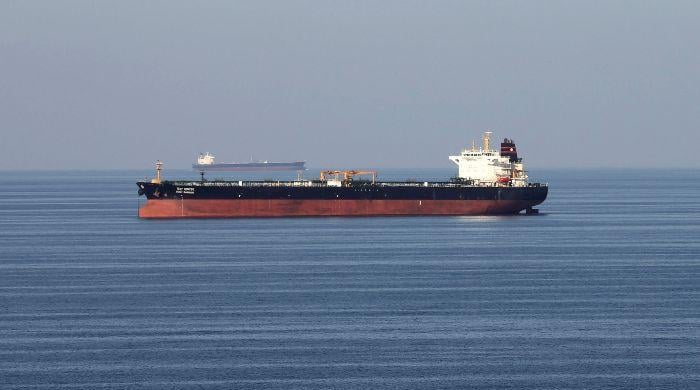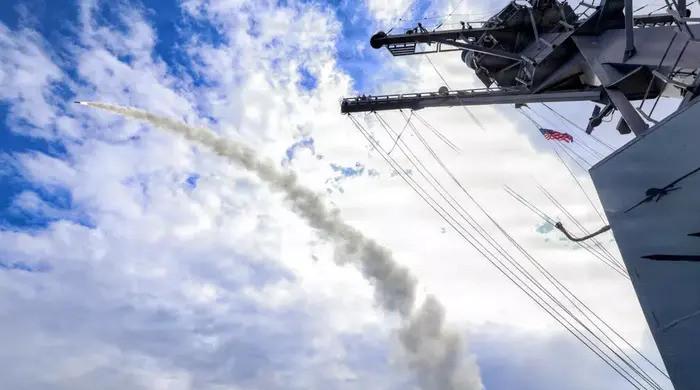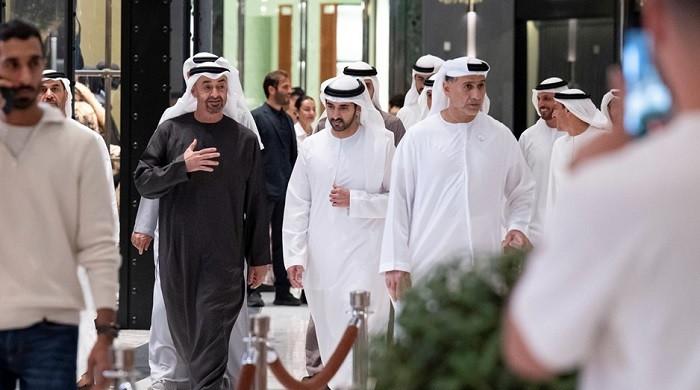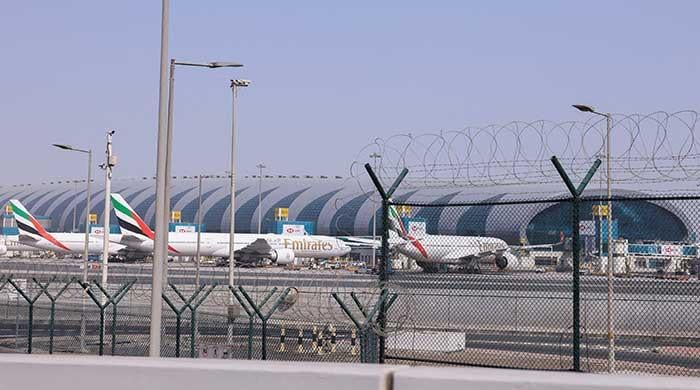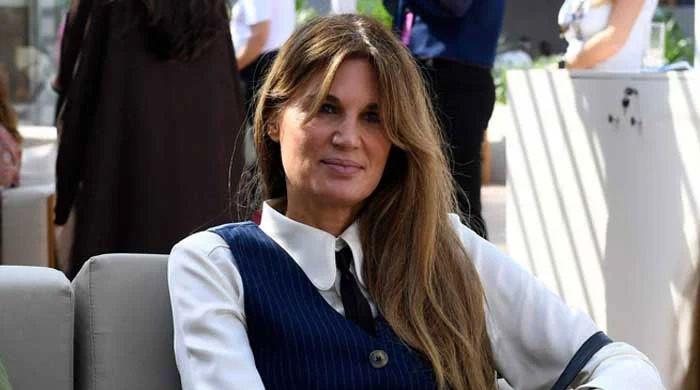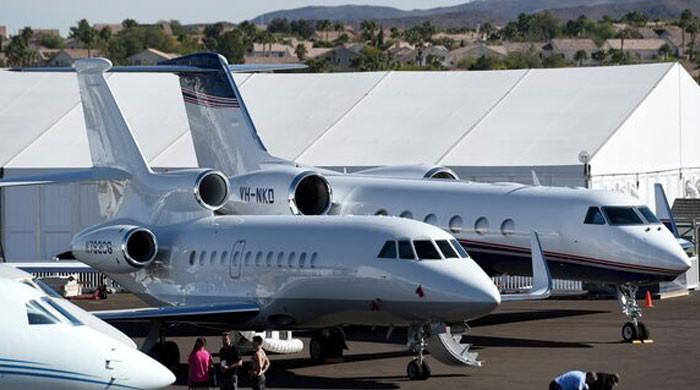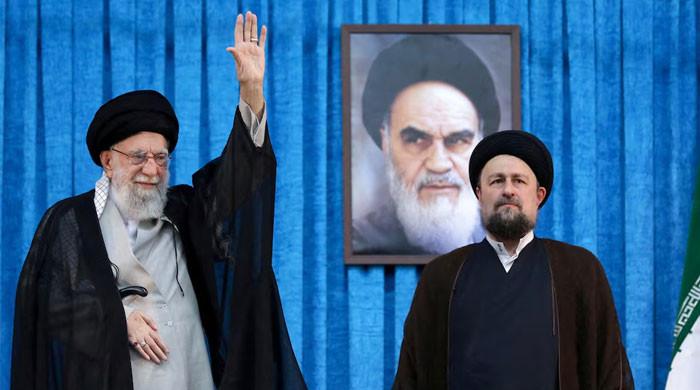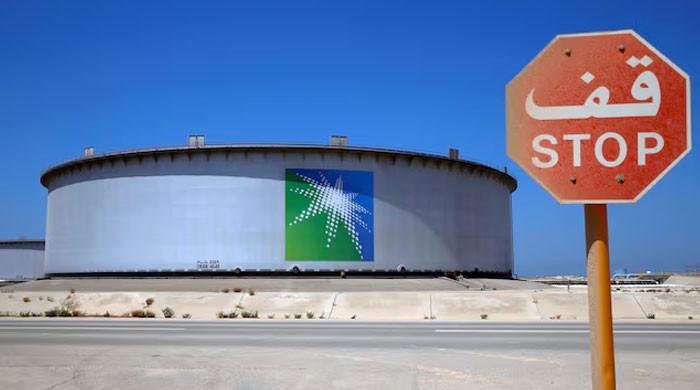Trump says Modi assured him India will halt Russian oil imports amid Ukraine truce push
New Delhi says its energy priority was interest of citizens, foreign ministry's spox neither confirm nor denies shift in policy
October 16, 2025
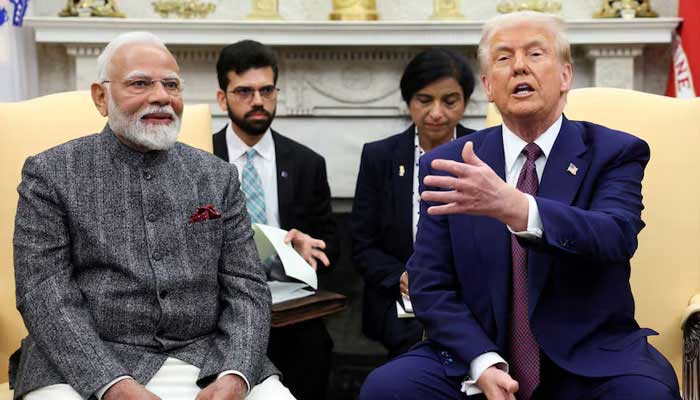
- Calls India’s pledge a "big stop" in isolating Moscow economically.
- Says he now expects Chinese leadership to take similar action.
- Indian embassy in Washington yet to confirm Modi’s commitment.
NEW DELHI: US President Donald Trump said on Wednesday that Indian Prime Minister Narendra Modi told him that India will stop buying oil from Russia, a move Trump described as a “big stop” in efforts to isolate Moscow economically.
India and China are the two top buyers of Russian seaborne crude exports, taking advantage of the discounted prices Russia has been forced to accept after European buyers shunned purchases and the US and the European Union imposed sanctions on Moscow for its invasion of Ukraine in February 2022.
Trump has recently targeted India for its Russian oil purchases, imposing tariffs on Indian exports to the US to discourage the country's crude buying as he seeks to choke off Russia's oil revenues and pressure Moscow to negotiate a peace deal in Ukraine.
“So I was not happy that India was buying oil, and he assured me today that they will not be buying oil from Russia,” Trump told reporters during a White House event.
“That’s a big stop. Now we’re going to get China to do the same thing.”
The Indian embassy in Washington did not immediately respond to emailed questions about whether Modi had made such a commitment to Trump.
An Indian pledge to halt buying Russian oil would mark a potential turning point in global energy diplomacy, as Washington intensifies efforts to choke Moscow's oil revenues amid its ongoing war in Ukraine.
It would also signal a major shift by one of Moscow’s top energy customers and could reshape the calculus for other nations still importing Russian crude.
It comes as Trump seeks to leverage bilateral relationships to enforce economic isolation, rather than relying solely on multilateral sanctions.
During his comments to reporters, Trump added that India could not "immediately" halt shipments, calling it "a little bit of a process, but that process will be over soon."
'Interest of citizens priority'
Meanwhile, India has said that its energy priority was the interest of its citizens, after President Trump said New Delhi had promised it will stop buying Russian oil.
New Delhi neither confirmed nor denied that it was shifting policy towards Russia.
"It has been our consistent priority to safeguard the interests of the Indian consumer in a volatile energy scenario," Indian Foreign Ministry spokesman Randhir Jaiswal said in a statement.
"Our import policies are guided entirely by this objective."
PM Modi has previously defended buying oil from Russia, a historic partner of India, despite Moscow's invasion of Ukraine.
Trump in August raised tariffs on Indian exports to the United States to 50%, with Trump's aides accusing India of fueling Russia´s war in Ukraine.
"Ensuring stable energy prices and secured supplies have been the twin goals of our energy policy," Jaiswal added.
"This includes broad-basing our energy sourcing and diversifying as appropriate to meet market conditions."
India, one of the world´s largest crude oil importers, relies on foreign suppliers for more than 85% of its oil needs.
New Delhi traditionally relied on Middle East nations.
But since 2022, it shifted sharply toward discounted Russian crude, taking advantage of a buyer's market created by Western bans on Moscow's exports.
"Where the US is concerned, we have for many years sought to expand our energy procurement," Jaiswal said.
"This has steadily progressed in the last decade. The current administration has shown interest in deepening energy cooperation with India. Discussions are ongoing."
'Stopped eight wars'
“I’ve stopped eight wars so far,” said US President Donald Trump, replying to a question, and he added that Prime Minister Shehbaz Sharif told him he had saved millions of lives.
Trump also said that seven planes were shot down during the Pakistan-India war and that the two countries had come very close to a nuclear conflict.
PM Shehbaz on Monday described Trump as a "genuine man of peace", who had worked relentlessly and untiringly to end global conflicts, including the war in Gaza.
Standing with the US president and other global leaders at a Sharm el-Sheikh press conference, Shehbaz said peace was achieved after months of Trump-led diplomacy, making the world “a place of peace and prosperity.”
He said Pakistan had earlier nominated Trump for the Nobel Peace Prize for his "outstanding and extraordinary contributions" in halting a potential war between India and Pakistan and securing a ceasefire.
"Today, again, I would like to [re-]nominate this great president [Trump] for the Nobel Peace Prize because I genuinely feel that he's the most deserving candidate," PM Shehbaz said, addressing the Gaza peace conference earlier this week.
"He has brought peace not only to South Asia, saving millions of lives, but also to the Middle East through his efforts in Gaza.”
The prime minister hailed Trump as "the man the world needed most at this point in time," adding that history would remember him as the leader who "stopped seven and today, eight wars."
"Had it not been for this gentleman [Trump]," Shehbaz said, "a full-scale war between two nuclear powers could have erupted. His timely intervention averted catastrophe."
The prime minister also said that Trump's "visionary and exemplary leadership" had made him a symbol of hope and peace for the world, and that his name "will be remembered in golden words."
The nuclear-armed rivals used missiles, drones and artillery fire during the four-day fighting — their worst in decades — triggered by an April attack on tourists in the Indian Illegally Occupied Jammu and Kashmir (IIOJK) that New Delhi blamed on Islamabad, before agreeing to a ceasefire brokered by the US.
Pakistan has denied involvement in the April attack and offered to participate in an independent and credible probe.





